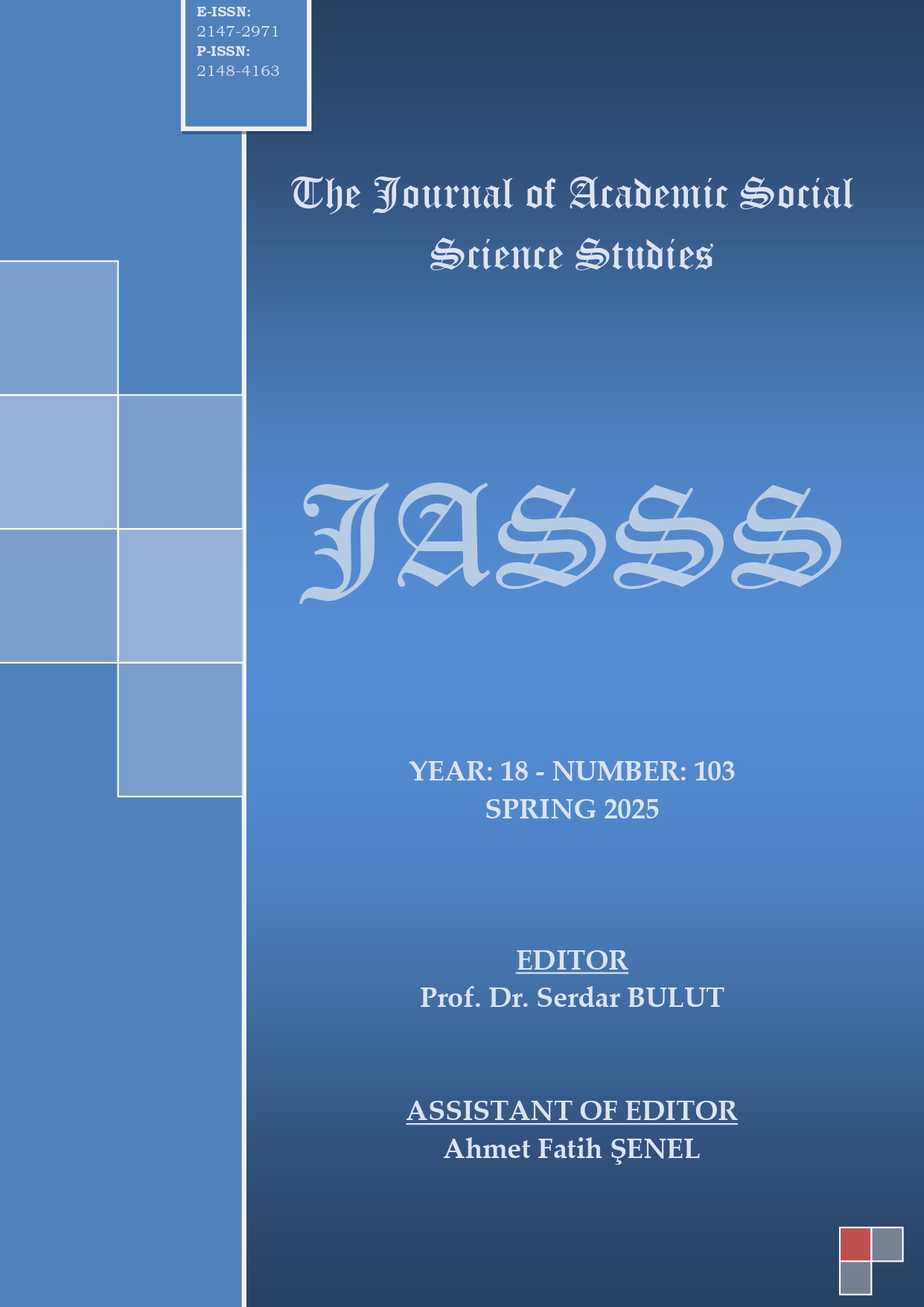Author :
Abstract
Bu makalede Gurnah’ın Hac Yolu, yazmanın, romanın karakteri Daud’u rahatlatan ve Daud’a yöneltilen ırksal ve etnik ayrımcılıkla başa çıkabilen bir kimlik yaratarak üçüncü alan işlevi gördüğü bir roman olarak analiz edilmektedir. Gurnah, bir sürgün ve diyaspora romancısı olarak yerinden edilmiş sürgünlerinin ikircikli durumunu tasvir eder ve bu insanların ırkları, renkleri ve dinleri nedeniyle aşağılandıkları düşmanca bir Avrupamerkezci ortamda özneliklerini nasıl koruduklarına ve yeniden inşa ettiklerine dair yeni sorgulama alanları açar. Hac Yolu'nda Gurnah, özcü kimlik modlarını/modellerini alt üst eder ve hikâyenin kahramanı Daud'un bir tarihi yeniden yarattığı ve hayatının zorlu koşullarına ve sessiz ve imalı boyun eğdirme mekanizmaları nedeniyle çektiği acılara dayanmak için kimi insanlara mektuplar yazdığı unutulmaz sahneler yaratır. Bhabha'nın terimlerini kullanacak olursak, hem sürgün hem de nostaljik benlik olarak bu çift kimliğe sahip olmak, Bhabha'nın kimlik ve benliğin akışkan ve sürekli değişim halinde olduğu üçüncü alan olarak adlandırdığı başka bir yer daha yaratır. Üçüncü alandaki bu belirsiz ve salınan özne, hegemonik anlatıların bozulmasına katkıda bulunur ve karşılıklı diyaloglara , müzakerelere ve tanınmaya olanak tanır.
Keywords
Abstract
This paper analyzes Gurnah’s Pilgrim’s Way as a novel in which writing functions as the third space through which the character Daud finds a locus of relief and creates an identity that can cope with racial and ethnic discrimination diverted against him. Gurnah as a novelist of exile and diaspora depicts the ambivalent situation of his dislocated exiles and opens up new spaces of enquiry as to how dislocated people protect and reconstruct their subjectivity in the face of a hostile Eurocentric environment that denigrates people on account of their race, color and religion. In Pilgrim’s Way Gurnah subverts essentialist mode(l)s of identity and creates momentary scenes in which Daud, the protagonist of the story, recreates a history and writes letters to some people as a means to stand the harsh conditions of his life and sufferings on account of the silent and implicit mechanisms of subjugation he undergoes. In Bhabha’s terms, having this double identity of both as the exilic and the nostalgic self creates yet another locus, which Bhabha names as the third space where identity and self are fluid and in constant flux. These indeterminate and oscillating subject positions in the third space contributes to the disruption of hegemonic narratives and allows for inter-dialogue negotiation and recognition.





